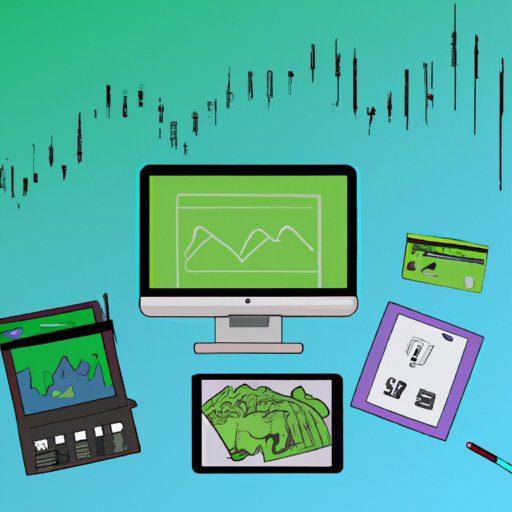Introduction
Professional trading is the process of buying and selling financial instruments such as stocks, bonds, commodities, currencies, and derivatives with the intention of making a profit. Professional traders are often referred to as market makers, day traders, or arbitrageurs. They use technical analysis and other strategies to identify potential trading opportunities and make decisions about when to enter and exit positions in order to maximize profits.
Trading professionally can be both challenging and rewarding. It requires a thorough understanding of different markets, the ability to develop and execute a trading plan, and the ability to manage risk. In addition, it requires discipline, consistency, and patience. With the right approach, however, professional trading can be an excellent way to generate income and build wealth.
Research the Markets
The first step in becoming a professional trader is to research the different types of markets. Each market has its own unique characteristics, and it’s important to understand how they work. For example, the stock market involves buying and selling shares of companies, while the foreign exchange market involves trading currencies. It’s also important to understand the factors that can affect each market, such as economic indicators, geopolitical events, and supply and demand dynamics.
Develop a Trading Plan
Once you have a basic understanding of the different markets, the next step is to develop a trading plan. This should include setting goals, identifying entry and exit points, and developing risk management strategies. Your plan should also consider your personal preferences, such as how much time you can devote to trading and how much risk you’re willing to take. It’s important to remember that this plan should be flexible and adjusted as needed.
Learn Technical Analysis
Technical analysis is the process of analyzing charts to identify potential trading opportunities. This includes looking at trends, support and resistance levels, and chart patterns. It’s important to understand the basics of technical analysis before attempting to trade professionally. There are many online resources available to learn more about technical analysis.
Utilize Risk Management Tools
Risk management is an essential part of professional trading. Utilizing risk management tools such as stop-loss orders and limit orders can help minimize losses and protect your capital. It’s important to understand how these tools work and when to use them. Other risk management techniques, such as diversification and position sizing, can also be useful.
Practice on a Demo Account
Before risking real money, it’s important to practice trading on a demo account. This allows you to test out different strategies and gain experience without risking any of your own money. Most online brokers offer free demo accounts, so take advantage of this opportunity to hone your skills before trading with real money.
Monitor the News
It’s important to stay up-to-date on economic and geopolitical events that can impact markets. Keeping an eye on news sources such as Bloomberg, The Wall Street Journal, and CNBC can help you stay informed and make better trading decisions. It’s also important to pay attention to company earnings reports and other financial data that can affect individual stocks.
Join a Trading Community
Joining a trading community can be a great way to network with other traders and learn from their experiences. Many online forums and social media groups offer a platform for discussing trading strategies and sharing ideas. These communities can also be a great source of inspiration and motivation.
Conclusion
Trading professionally requires knowledge and experience. By researching the markets, developing a trading plan, learning technical analysis, utilizing risk management tools, practicing on a demo account, monitoring the news, and joining a trading community, you can develop the skills necessary to become a successful professional trader.
(Note: Is this article not meeting your expectations? Do you have knowledge or insights to share? Unlock new opportunities and expand your reach by joining our authors team. Click Registration to join us and share your expertise with our readers.)
